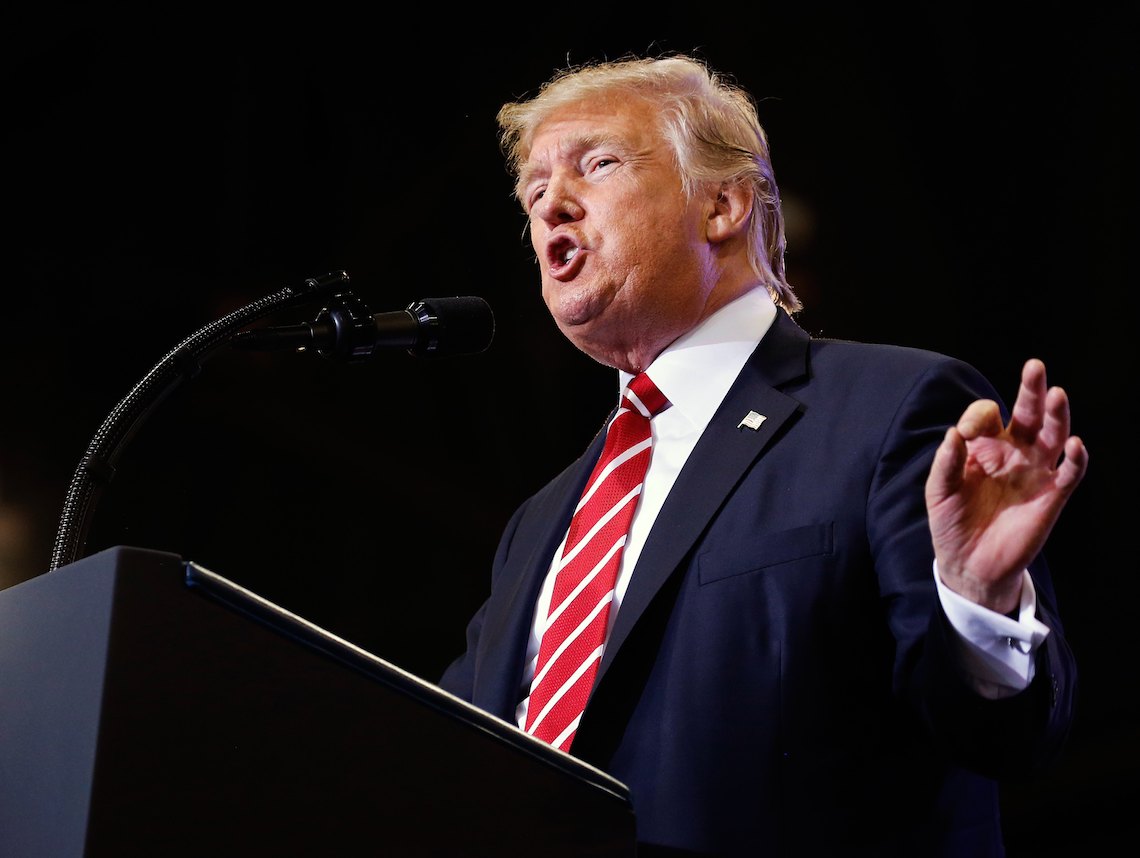 President Donald Trump on Aug. 22. Photo by Joshua Roberts/Reuters
President Donald Trump on Aug. 22. Photo by Joshua Roberts/Reuters President Donald Trump’s decision on “Dreamers” actually reflects a broadly held, nuanced consensus regarding the status of immigrants brought into this country as children of parents who entered illegally.
First, legal immigration is good for the United States, and the U.S. takes in more legal immigrants than any other nation. But there must be reasonable, debatable and annual limits.
[TRACY ESCOBEDO: When will Dreamers be seen as Americans?]
We are a nation of immigrants, and all Americans, born here or not, are equal citizens entitled to the full protection of the law and every opportunity to enjoy the American Dream.
The administration has proposed prioritizing immigrants for our nation’s economic benefit and limiting the scope of family reunification to leverage the economic merit of applicants.
Silicon Valley, for instance, suggests we not deport tech graduates here on student visas once they have computer science degrees in hand. We invested in them, now they can invest in the U.S.
Next, illegal immigration is unlawful, as are sanctuary cities that violate federal law. No country allows illegal immigration, and many countries are much tougher than the U.S.
Illegal immigration results in human rights abuses by coyotes against suffering poor people and invites countries to dump their poor into the U.S. It’s corrupt and nefarious.
Businesses must not be allowed to hire illegals. This distorts the economy and drives down wages in the economy.
And Mexico, one way or another, should reimburse the United States for the decades-long purposeful strategy of exporting Mexican workers in return for importing hundreds of billions of dollars of remittances back to Mexico.
Third, our country will not round up 10 to 20 million unlawful residents and deport them. Our country will also not deport 800,000 Dreamers who work, pay taxes and go to school.
And fourth, Congress must reassert its constitutional authority and obligation to protect our borders and set immigration policy, denying federal aid to “sanctuary” states and cities.
Congress must clarify if Birthright Citizenship — which meant Black slaves and their progeny in the 19th century were full Americans — should continue to reward “birth tourism;” whether illegal immigrants may earn a path to citizenship, voting rights or the ability to run for office; and, finally, the federal penalty for employers hiring illegal workers.
States must decide on the welfare, educational and health benefits to be afforded undocumented workers and their families.
The Dreamers have already won. They have made it to America, built lives of generally good citizenship and are unlikely to be deported in big numbers due to the compassion and common sense of the American people, who respect the rule of law, with fair and reasonable policies regarding immigrants here illegally via border crossing or by over-staying visas.
But the critics of illegal immigration have also won the debate: No blanket amnesty or citizenship status for illegal entrants, except perhaps enlistees of the armed forces; and no patience for violent criminals, many of whom are repeat border violators who must be deported (along with a bill to the countries of origin for our troubles).
Advocates for resolute border security make economic, rule-of-law and national-security arguments for tougher standards and controls of both legal and illegal immigration.
Americans support both a border wall and advanced technologies to increase security in a world of jihadism and weapons of mass destruction.
President Trump, who has asserted his “love” for the Dreamers, is balancing his “America First” / “The Business of America Is Business” policies with the facts on the ground and his knowledge that legal immigration is American.
President Barack Obama repeatedly asserted he lacked unilateral authority to keep the Dreamers, but he did so anyway. President Trump has been well advised to return the policy issues to Congress.
Larry Greenfield has been a Fellow of the Claremont Institute, the Tikvah Advanced Institute, and the Wexner Heritage Foundation. He is former executive director of the California Republican Jewish Coalition, the Reagan Legacy Foundation, and the Jewish Institute for National Security Affairs.























 More news and opinions than at a Shabbat dinner, right in your inbox.
More news and opinions than at a Shabbat dinner, right in your inbox.